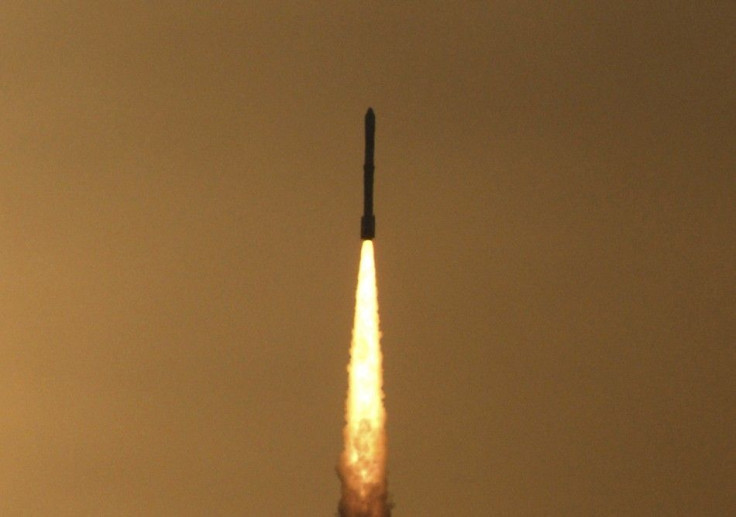India Launches Risat-1; China Says It's Spy Satellite

India successfully launched an indigenous microwave Radar Imaging Satellite, Risat-1, from the spaceport at Sriharikota in the southern state of Andhra Pradesh Thursday.
The satellite, which can provide high resolution pictures and microwave imaging useful for disaster prediction, agriculture forestry and defense, has been termed a spy satellite by China's Xinhua news agency.
The satellite, built by the scientists at the Indian Space Research Organization (ISRO) and launched using the Polar Satellite Launch Vehicle (PSLV), has a life span of five years.
PSLV- C19, transporting the 1,858 kg Risat-1 to its orbit, roared into the skies at 5:47 am from the launch pad No 1 at Sriharikota, amidst resounding cheers of ISRO scientists. Risat-1 is the heaviest satellite PSLV has launched into an orbit since 1993. The satellite was delivered into the orbit at an altitude of 480 km, after 17 minutes from takeoff.
Indian Prime Minister Manmohan Singh said Risat-1 launch was an important milestone in India's space program and lauded the ISRO scientists for displaying mastery of the satellite launch technology.
I would like to warmly congratulate all scientists of the Indian Space Research Organization (ISRO) for the successful launch today of the Polar Satellite Launch Vehicle (PSLV)-C19 carrying the Radar Imaging Satellite -1(RISAT -1), the heaviest satellite launched till date using PSLV, Singh said, reported the Press Trust of India.
The twentieth consecutive successful launch of the PSLV is an important milestone in our space program and is testimony to ISRO's mastery of the complex launch vehicle technology, he added.
Singh expressed confidence that the new satellite would significantly contribute to India's remote sensing capabilities.
PSLV-C19 mission is a grand success. This is the 20th successive successful flight of PSLV. India's (indigenously built) first radar imaging satellite was injected precisely into orbit, ISRO Chairman K. Radhakrishnan said after the launch, Indo-Asian News Service (IANS) reported.
India has the largest group of remote sensing satellites in the world and is the world leader in the remote sensing data market, with 11 satellites orbiting in the space. This is the 54th satellite that PSLV has launched, of which 53 were successfully delivered into the orbits. PSLV failed to reach the orbit in a launch in 1993.
The Risat-1 was launched close on the heels of India's successful test of Agni-V, its first long-range, nuclear-capable ballistic missile, which has significantly leveraged Indian military's might. Agni-V is 17m long, 2m wide and weighs 50 tons and it can carry a payload of 1 ton. It is an upgraded version of the indigenously built Agni series powered by solid rocket propellants, capable of clocking 5,000 kilometers, to target parts of northern China and eastern Europe.
© Copyright IBTimes 2024. All rights reserved.






















